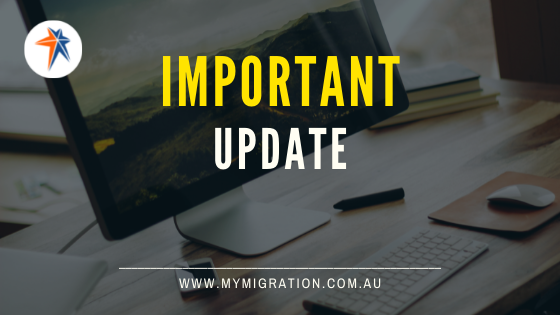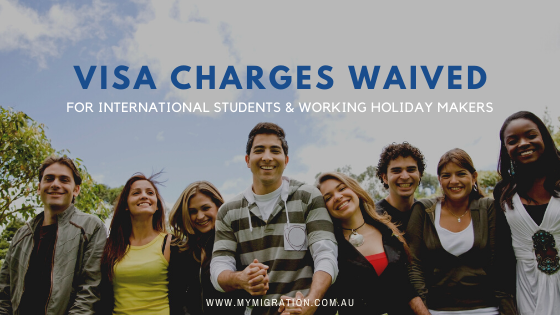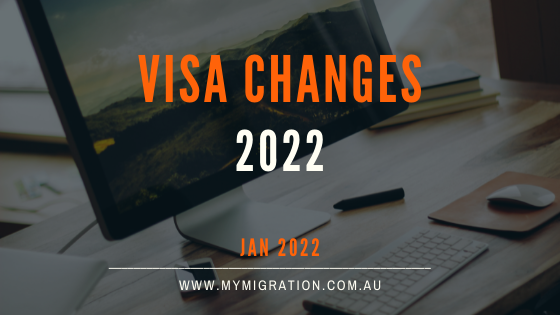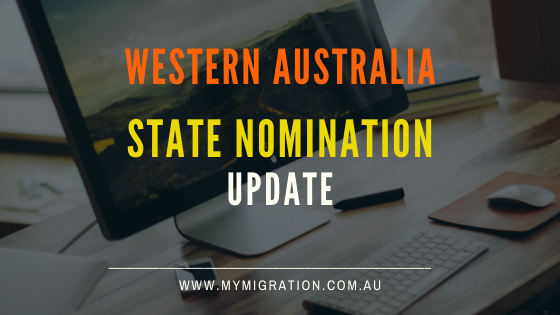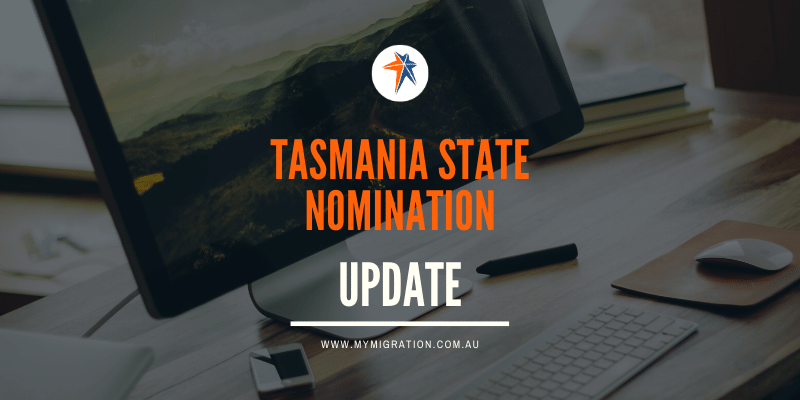Happy New Year everyone and I hope that 2022 will the year you achieved your goals!
While the last two years have been very challenging (and it continues while we transition into 20220) let’s push through these by remaining strong and focused on our goals.
I think this year we would see many visa changes announced by both federal and state governments, especially to meet growing shortage of skilled & unskilled workers.
Here’s a summary of the major visa changes announced for 2022 so far:
UPDATE ON 19 January 2022 – visa extensions for COVID-19 affected temporary graduate visa holders
On 18 February 2022, certain eligible Temporary Graduate (subclass 485) visa holders will have their visas extended or enlivened to 30 September 2022. Visa holders eligible for an extension will be notified directly by the Department.
This interim measure allows eligible Temporary Graduate (subclass 485) visa holders who were affected by COVID-19 travel restrictions to enter, or remain in, Australia to live and work until they can apply for and be granted a replacement Temporary Graduate visa.
Eligibility
To be eligible for a Temporary Graduate visa extension:
- visa holders must have held a Temporary Graduate visa on 15 December 2021
- the current visa expires before 30 September 2022
- the primary visa holder was in Australia at time of the visa grant
- the primary visa holder has been outside Australia for any period between 1 February 2020 and 14 December 2021 (inclusive)
- the visa has not been cancelled since 15 December 2021
- the holder has not been granted a further substantive visa since 15 December 2021.
To be eligible for visa enlivening:
- visa holders must have held a Temporary Graduate visa that visa expired between 1 February 2020 and 14 December 2021 inclusive
- the primary visa holder was in Australia at time of grant
- the primary holder of the visa has been outside Australia for any period between 1 February 2020 and 14 December 2021 inclusive
- the visa was not cancelled
- the visa holder has not been granted a further substantive visa.
Cost
The visa extension is free and will occur automatically. You do not need to contact the Department.
The visa extension will include family members that were included in the original Temporary Graduate visa.
Source: News page (homeaffairs.gov.au)
Replacement visa for 485 (Temporary Graduate) visa holders & longer durations
The Government has announced further measures to support the return of international students and graduates, bolstering the international education industry by:
- Allowing Temporary Graduate visa holders, who have been unable to travel to Australia as a result of COVID-19 international border restrictions, to apply for a replacement visa (from 1 July 2022).
- Increasing the length of stay on Temporary Graduate visas in the Masters by Coursework and Vocation Education and Training (VET) streams.
- The stay period on the Temporary Graduate (subclass 485) visa Graduate Work stream, will increase from 18 to 24 months, and application requirements will be streamlined by removing the requirement for graduates to nominate an occupation from the skills occupation list.
- The stay period on the Temporary Graduate (subclass 485) visa for Masters by Coursework graduates, will increase permanently from two to three years, to match the stay period for Masters by Research graduates.
- Simplifying the requirements for Temporary Graduate visa applicants for VET sector graduates; and
- Extending the existing measure for student and temporary graduates to recognise time spent offshore studying online to count towards qualifying for a Temporary Graduate visa application.
These changes will be implemented progressively from 1 December 2021 through to 1 July 2022.
International students allowed extra hours to work
International students in Australia will be allowed to work extra hours to fill worker shortages as more and more people are forced into isolation due to the Omnicron outbreak. There have been worker shortages in hospitality, food distribution, manufacturing and building industries
Prime Minister Scott Morrison has announced that the government will remove the 40 hour a week fortnight cap on student visa holders, meaning they will no longer have restrictions on the amount of hours they can work.
While this is a welcoming news, international students will also have to maintain the full-time study load as part of their student visa conditions (which is a minimum of 20 hours per week). Getting international students to work more could also put them at a higher risk of catching COVID-19.
So, it remains to be seen how students will be able to balance full-time work and study while taking care of their health.
2021-2022 Migration Planning Levels
Currently set at 160,000 places with Skilled (79,600), Family (77,300), Children (3000) and Special Eligibility (100).
Migration program for 2022-2023 is under consideration here and will be published in due course.
Migration program for 2024-2025 is forecasted at 235,000 places.
Entry to Australia
Australian citizens and permanent residents can enter Australia while their immediate family members can apply for an exemption to enter.
Vaccinated international students and certain visa holders can also enter Australia from 15 December 2021. This was to begin from 1 December 2021; however, the reopening was paused due to the emergence of the ‘Omicron’ COVID-19 variant.
The list of visa subclasses can be found here. This list is expected to be revised and more visas added in future.
For more information on travel restrictions and exemptions, please visit official website: Travel restrictions | COVID-19 and the border (homeaffairs.gov.au)
PR pathways for TSS (subclass 482) visa holders in the short-term stream
In November, the Australian government announced permanent residency pathways for certain migrants (in health and hospitality industries), who chose to stay and work in Australia during the pandemic. 482 visa holders in the short-term stream were previously restricted to a two-year temporary stay, without pathway to permanent residency. Certain 457 visa holders who no longer meet the age requirement, may also benefit.
It is expected that about 20,000 such visa holders may benefit from these changes, hospitality being one of the affected industry!
The department spokesperson said the changes announced on 25 November 2021 will be implemented progressively from December 2021 through to 1 July 2022. Further details are awaited, and may provide more clarity towards mid-year.
Visa extensions for subclass 489, 491 and 494 visa holders
The Government will also extend visas for skilled regional (provisional visa) holders (subclass 489, 491 and 494) as this group has been adversely affected by COVID-19 related travel restrictions.
“Current and expired skilled regional provisional visas will be extended, providing additional time to meet regional work requirements for permanent residence,” Minister Hawke said.
It is estimated that there are currently around 9,000 skilled regional provisional visa holders overseas. These visa holders can enter Australia from 15 December 2021, and they will also be eligible for an extension of their visas, so that they can then meet residency and employment requirements for permanent visa (subclass 191).
Section 48 bar lifted for skilled migration visas
The government has lifted the “section 48 bar” for certain skilled visas (Subclasses 491, 494 and 190) temporarily, to allow affected applicants to apply for these visas.
From 13 November 2021, onshore applicants affected by the section 48 bar can apply for these skilled visas.
Applicants must be on a substantive visa, Bridging Visa A, B or C and meet other requirements of these visa subclasses.
What is section 48 bar?
Section 48 bar applies to applicants who have had a visa refused or cancelled since their last entry into Australia. It restricts application of most types of visas in Australia.
My visa was cancelled, and I am affected by section 48. Am I eligible to apply?
Not really! Anyone who is affected by section 48 due to their visas being cancelled would not be eligible, because they usually hold a Bridging Visa E and potentially restricted by PIC 4020 etc.
It is expected that a big pool of people will be able to apply for these visas.
The department spokesperson said the change only applies during the current COVID-19 emergency and additional subclasses will be removed from the list of exempt visas once this period ends.
Changes for 189 (New Zealand stream) visa
From 1 July 2021, the government announced changes to reduce the number of years to meet the specified income threshold.
If you applied on or after 1 July 2021:
You must have met the minimum income threshold for at least 3 completed financial years in the 5 years immediately before you apply. One of these years must be your most recently completed financial year.
Applicants can also claim an exemption from meeting the income requirement for the 2020-2021 income year. Applicants can claim a COVID-19 income exemption from either the 2019-2020 or 2020-2021 income year but not both.
Permanent residency for Hong Kong nationals
In November, government announced two pathways for Hong Kong and BNO passport holders, to open from 5 March 2022:
- Subclass 191 – the Hong Kong (regional) stream — for primary visa holders who were usually resident in Australia for a continuous period of at least three years immediately before applying and who lived, worked and studied exclusively in a designated regional area for that period, while holding the qualifying visa.
- Subclass 189 – the Hong Kong stream — for primary visa holders who were usually resident in Australia for a continuous period of at least four years immediately before applying, and who held the qualifying visa during that period.
More to come 😊
Interested to know more?
Please Book a Consultation for an initial assessment and find out if you are eligible for an Australian visa and let us guide you towards your Australian migration goal.
Disclaimer
The above article constitutes only generic information on migration issues, and does not constitute specific migration advice to any entity or individual.

